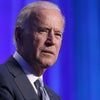No society can long tolerate individuals claiming freedom from legitimate government mandates to justify interfering with the rights of others. That’s exactly what the Pennsylvania organizer of a truck convoy apparently plans for DC this week; he reportedly plans to “shut down” the Beltway to protest COVID vaccine mandates.
Up north, after weeks of patience, Canadian Prime Minister Justin TrudeauJustin Pierre James TrudeauPentagon approves request for National Guard deployment ahead of DC trucker convoy Australia, Canada, Japan impose sanctions on Russia over Ukraine crisis Deputy opinion editor at Newsweek: Canadian trucker convoy protests about ‘control,’ ‘class divide’ MORE had law enforcement end the obstruction of urban streets, bridges and the Canadian economy by a fringe cohort of anti-vaccination protesters.
Like Trudeau, past American presidents have emphasized protesters’ right to voice their views — but have drawn the line at disruptions infringing upon others’ rights. Republican Dwight Eisenhower and Democrat John F. Kennedy allowed time before invoking emergency measures against those taking the law into their own hands in the name of their own “freedom” from being told how to live their lives.
On Sept. 23, 1956, after patiently waiting 19 days for segregationist Arkansas authorities to end their obstruction, Eisenhower ordered 101st Airborne paratroopers to ensure nine black students’ admission into Little Rock’s Central High School.
Kennedy took similar action on June 11, 1963. He federalized the Alabama National Guard and ordered it to the state’s university, forcing white supremacist Gov. George Wallace to back down from a doorway where he stood blocking Black students James Hood and Vivian Malone from registering.
If the planned road blockage occurs this week in DC, it will be Sen. Rand Paul
The Canadian protesters’ trucks flew Confederate flags and swastikas. Per polling, nearly two-thirds of Canada, where 90 percent of truckers are vaccinated, believes that the truckers represent “a small minority of selfish Canadians.” A Feb. 10-11 poll showed that 80 percent of respondents either opposed the protest or the methods being used.
If the DC obstruction occurs, President Biden
In a nutshell, Trudeau’s playbook had six short chapters.
- On Jan. 31, as he deplored symbols of white supremacy that accompanied the protests, he expressed respect for freedom of expression and of association. He was patient, reminding the public that in a democracy, peaceful protests can be irritating and inconvenient, but they are an essential right.
- When the protests persisted, on Feb. 10, Trudeau told the protesters that continuing to block the national economy must stop.
- He allowed the free press to do his job: report on who was behind the protests and show the non-trucker connections of most protestors blocking the route to the Ambassador Bridge between Windsor and Detroit.
- I have given the protestors time to respond. Before long, it was clear that their primary agenda was to embarrass Trudeau’s liberal government.
- I have moved deliberately. When warnings went unheeded, on Feb. 16, the prime minister invoked emergency measures and told those still participating that it was “time to go home” — unless they wanted to be jailed and have their vehicles and bank accounts impounded.
- In the days that followed, Canadian law enforcement arrested more than 100 protesters using their vehicles to block streets, towing away trucks and freezing some of the leaders’ bank accounts. Ultimately, the only message left for protestors was “I give up.”
Should a parallel campaign commence in American cities, President Biden would be smart to issue an immediate warning about the consequences of interfering with other citizens’ lives and with commerce. He should not hesitate to act quickly after that warning.
Sen. Paul said about the Canadian protest that “Civil disobedience is a time-honored tradition in our country… [C]log things up, make people think about the mandates.”
But honorable practitioners of civil disobedience understand and accept the consequences of breaking the law in pursuit of their purpose. As Rev. Martin Luther King, Jr., wrote in his celebrated 1963 Letter from the Birmingham jail, the civil disobedient “willingly accepts the penalty of imprisonment in order to arouse the conscience of the community” for his or her ideals de ella .
Not convoy organizer Bob Bolus. Fox reported “When asked if he was prepared to be arrested, Bolus said he did not intend to be.”
Those who do not believe in vaccine mandates have every right to protest peacefully and lawfully. Once they disobey laws and interfere with others’ rights, however, the government’s duty is to enforce the law. The president should tell Bolus and his cohort of him, in so many words: “If you ca n’t do the time, do n’t do the crime.”
Frederick E. Hoxie is professor emeritus of history, law and American Indian studies at the University of Illinois, Urbana-Champaign. He has taught US History for 40 years. His latest book of him is “This Indian Country: American Indian Activists and the Place They Made.”
Dennis Aftergut is a former federal prosecutor, currently of counsel to Lawyers Defending American Democracy.
thehill.com
George is Digismak’s reported cum editor with 13 years of experience in Journalism